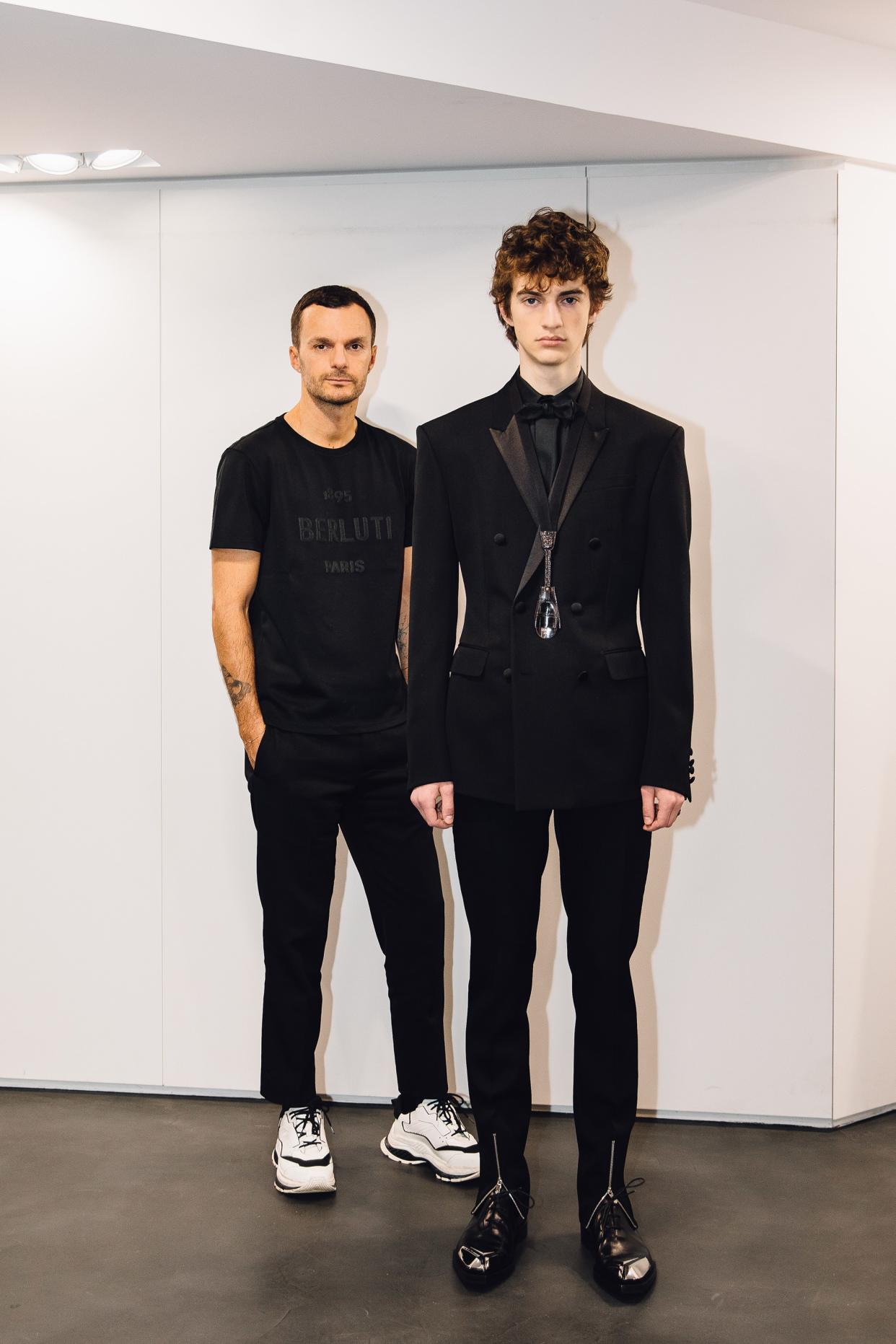The Challenge of Freedom: Kris Van Assche on Rebooting Berluti

Kris Van Assche has been biding his time. Since his transition from Dior Homme last year as part of the mammoth Paris reshuffle of 2018 that saw Virgil Abloh go to Louis Vuitton, Kim Jones sidestep to Dior, and Hedi Slimane pop up again at Celine, Van Assche has been notable by his absence from the cycle of brouhaha in his new role heading up Berluti—which he succeeded from Haider Ackermann, and before him Alessandro Sartori, and which is the only exclusively menswear brand in the LVMH group portfolio. So what has Van Assche been up to? At a preview meeting prior to his first out-in-the-open Berluti show tomorrow, we caught up with the enigmatic Belgian for a catch up. Below is an edited version of the conversation that ensued.
So you’ve been holding your cards close to your chest since joining Berluti...
Van Assche: Well, I’ve made a capsule that was shot and given to the press as a lookbook last year, and a pre-collection shown in-house only in November. So Friday’s will be the third collection—but it is the first one that feels ready to put on the catwalk and which feels… mature. Is that the right word? It feels like the page has been turned and I am ready. That takes some time, and I was really appreciative of the fact that Antoine [Arnault, Berluti’s CEO] agreed it would have been a bad idea when I arrived on the 16th of April to make a show in June. This house is about really high-end luxury and if you are going to maintain that level then you need some time.”
So how have you used that time, and what have you observed about Berluti?
You know, everybody is always talking about collaborations and how funky they are in fashion. But basically the first real collaboration here is between the designer and the house. I am a designer and this is a brand with its own DNA and we really need to find a way of collaborating. I didn’t become another person when I walked through the door. In my previous job at Dior I was there for 11 years and I had really grown into that DNA. So here the first thing to do was to understand the heritage of the house. So I said, “well, take me to the archives so I can dive in!” But there is not really such a thing here. The heritage is about know—it is very different from Dior, which was very much about Mr Dior. And so you have a whole story about this heritage to work from. And that was a little bit frightening because at Berluti you are in front of a blank page. There are none of the rules and none of the codes and none of the things at Dior that you can start from here at Berluti
So where did you start from? strong text We took a flight to the manifattura in Ferrara which is the factory where the shoes are made. And that was something that blew me away. It’s a new territory for me, kind of. The factory is really super-modern and super-sophisticated, but there is also this really traditional handcraft element that is key to the products they make. And so the contrast between the super-contemporary and a hand-crafted [sensibility] was a really nice starting point for me. And then it was trying to understand this incredible patina on the shoes: I thought I have seen the brown shoes, and that patina, but where does it come from? How are they made? What is the process, what are the specifics around it? And then it was understanding that there are endless color ways possible starting from that technique: you can play with it and it can evolve.
How does Berluti differ from Dior?
Well, at my last job everything started from the know-how from the atelier and the sartorial know-how. Here it is basically a shoemaker’s know-how, which is new territory but super interesting. Everything literally starts from the shoes, from the feet up. Berluti is about freedom. People often try to put menswear in boxes. And because luxury menswear is supposed to be timeless and therefore it tends to be neutral, as well. But I am convinced that at Berluti obviously while it is supposed to be a high end luxury it is also supposed to be really remarkable: look twice clothes.
So you feel not so wedded to sartorial codes here at Berluti as you were at Dior?
Yes, although I still do love a good suit! That was also why Berluti for me was so interesting right now ,to accept as a challenge because there is such a tendency towards the street and the sportswear at the moment. This is also something that I like, but it is is nice to go in the opposite direction, I mean Berluti is for me the most luxury men’s brand of the group….
It is the only exclusively menswear brand in LVMH.
Exactly! So it is nice to go against the flow!
How has the transition been for you to your new role of Berluti?
You know, it has been over a decade that I was at Dior. I was 30 when I got the job, which was really young and really scary. Now I’m over 40. And there is a point at which you need to put yourself back in danger and you need to reinvent yourself. At one point it is about to getting stuck there forever or accepting the idea of a new challenge and Berluti is a really big challenge That is really stimulating.

